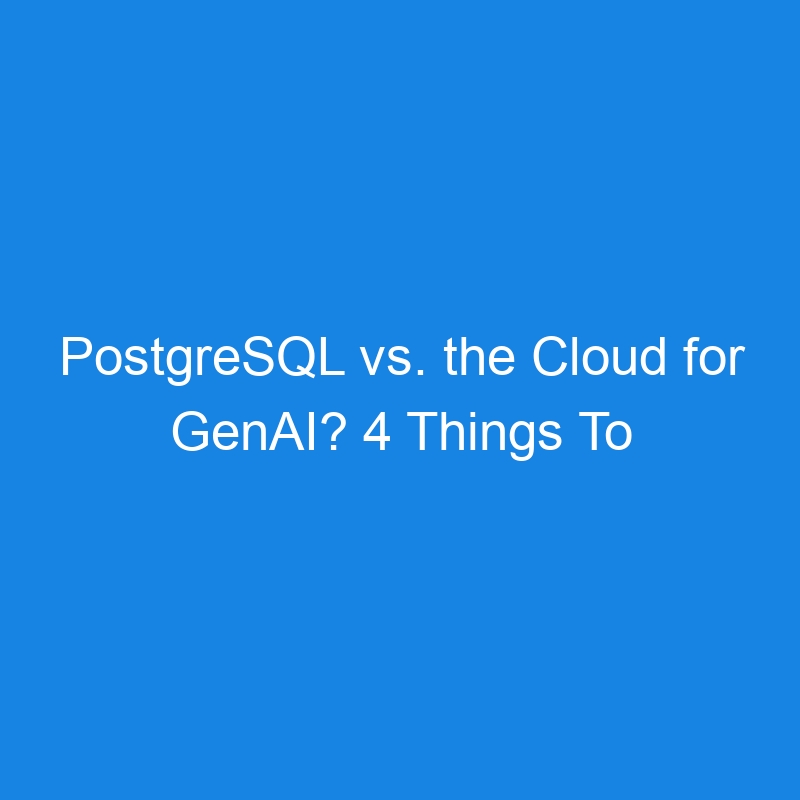
Generative AI (GenAI) has already shown its potential to reshape industries, promising to enhance productivity, take over operational tasks and drive revenue growth. According to Deloitte’s 2024 State of Generative AI in the Enterprise report, 80% of enterprises with advanced AI expertise plan to spend more on AI capabilities.
Yet, while GenAI’s halo shines bright, businesses are realizing that AI projects are far from straightforward. As companies continue to race to capitalize on GenAI capabilities, new challenges and opportunities are emerging in security and data management.
Challenges of the Dominant AI Development Models
Massive investments are required to modernize legacy systems and solve data-related issues before embarking on the GenAI journey. Yet, the majority of companies, including those on the Fortune 500 list, are using technology built decades ago that is often poorly suited for handling AI workloads.
Transitioning from legacy software is expensive and risks significant downtime and disruptions. Meanwhile, companies are impatient to see a return on investment (ROI): Almost half of US-based generative AI decision-makers expect AI investments to pay off within three years — an aggressive timeline given the complexity involved, and which disregards the reality of the challenge.
Cloud computing’s scalability and rapid provisioning have made it the preferred choice for deploying AI models. However, the cloud’s promise of cost efficiency often clashes with reality. Spending is frequently decentralized and difficult to control, and many enterprises have embraced financial operations (FinOps) frameworks to manage costs.
Many enterprises are concerned with potential threats associated with using third-party cloud services, including data sovereignty laws, regulatory compliance and concerns about sensitive information leaking during AI model training. These factors can make on-premises and hybrid solutions more appealing. Deloitte predicts that about half of enterprises worldwide will add on-premises models for AI development in 2025. So, while cloud services remain pivotal, enterprises are increasingly investing in on-premises hardware to protect intellectual property, comply with compliance regulations and mitigate risks of data exfiltration.
How To Choose the Right Database for GenAI
While the path to AI innovation is fraught with difficulties, it is far from impossible. One secret to success is choosing the best platform for your use case, and for many of them, that means adopting a reliable, versatile database solution like PostgreSQL.
Here are four reasons Postgres stands out for GenAI development:
- Extensibility and vector search support: PostgreSQL supports a rich set of native data types, including vectors. Vector search is a core requirement for AI applications; it allows businesses to prototype and iterate models without overhauling their database infrastructure. This not only reduces costs but also accelerates development timelines.
- Seamless integration: Unlike migrating to an entirely new database, leveraging PostgreSQL enables gradual modernization. Businesses can continue using familiar SQL tools while experimenting with new AI capabilities, minimizing disruption.
- Open source advantages: Postgres’ community-driven nature helps ensure continuous improvement and free accessibility. And because open source eliminates license fees, it positively influences ROI. Organizations can also opt for enhanced offerings like Percona for PostgreSQL that provide an out-of-the-box version of Postgres and tailored support for enterprise needs.
- Freedom of deployment: With Postgres and tools like Percona Everest, businesses can deploy AI projects where it makes the most sense — on premises, in the private cloud or using a hybrid approach — to mitigate data exfiltration risks.
AI Success Factors
We’ve learned from our customers that there are three factors to a successful GenAI approach: develop fast, fail cheaply and scale effectively. Learn more about how Percona can help you achieve all of this.
The post PostgreSQL vs. the Cloud for GenAI? 4 Things To Consider appeared first on The New Stack.
